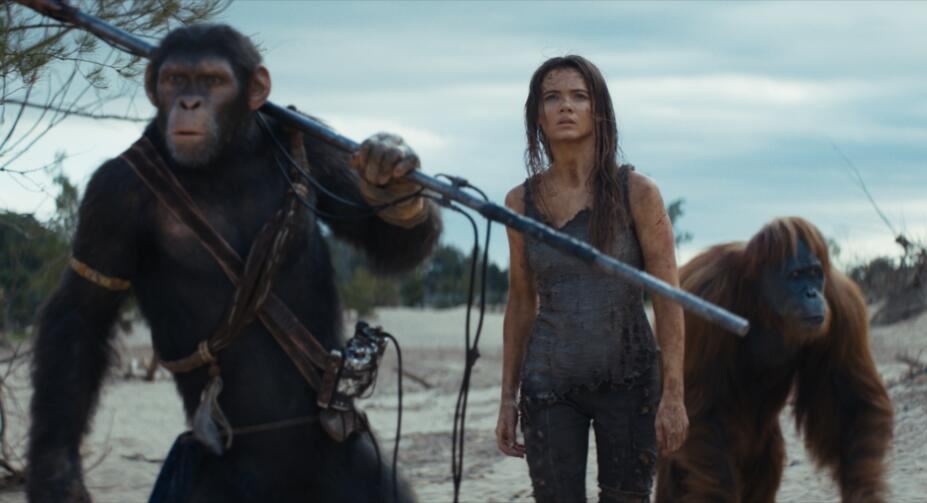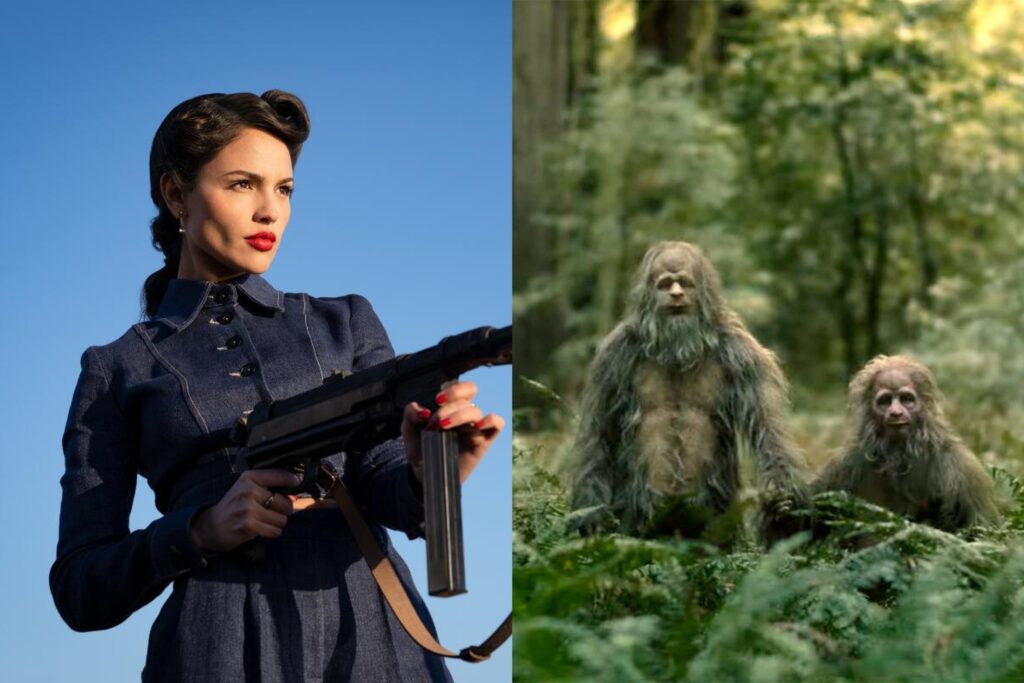Kingdom of the Planet of the Apes: Monkey See, Monkey Coup

Whose side are you on? That was the key question posed by the most recent Planet of the Apes trilogy, which didn’t just chronicle an evolutionary shift where monkeys grew smarter as people got dumber; it framed humans as creatures of crudity and barbarism, thereby realigning our rooting interests to the hyperintelligent chimpanzees who warred against our own species. By the end of War for the Planet of the Apes, this battle appeared to be resolved; primates were now autonomous, while a devastating virus had crippled humans into a mute tribe of limited intellect. But in our era of IP churn, no franchise can remain dormant for long, and so now we have Kingdom of the Planet of the Apes, which takes place “many generations” after the events of War and which unfolds in a broadly post-human landscape. This means the issue is no longer whether we’re cheering for the monkeys or the men, but whether the simians selected as heroes can prevail versus foes who are also—in a biological sense—fellows.
This raises a more troubling question: Is Kingdom really a Planet of the Apes movie at all? On one level, the query is absurd; the troops of computer-generated monkeys clambering across the screen definitively establish that we’re located in the same cinematic universe where Charlton Heston screamed in anguish all those years ago (and, more recently, where Andy Serkis led an uprising on the Golden Gate Bridge). But despite some developmental tension—humans do in fact exist in this world, and while they’re generally regarded as inferior beings, some are less inferior than others—Kingdom is largely a portrait of intraspecies conflict, one that soberly violates the edict from the prior trilogy, “Ape not kill ape.” As a result, its story of tribal warfare and imperial conquest could mirror any number of historical pictures about rival clans. The warriors here just happen to be furrier than usual. Read More




